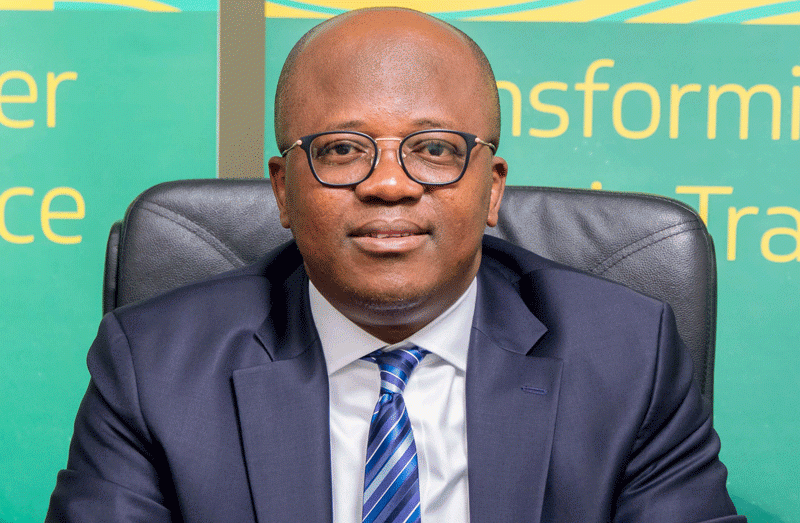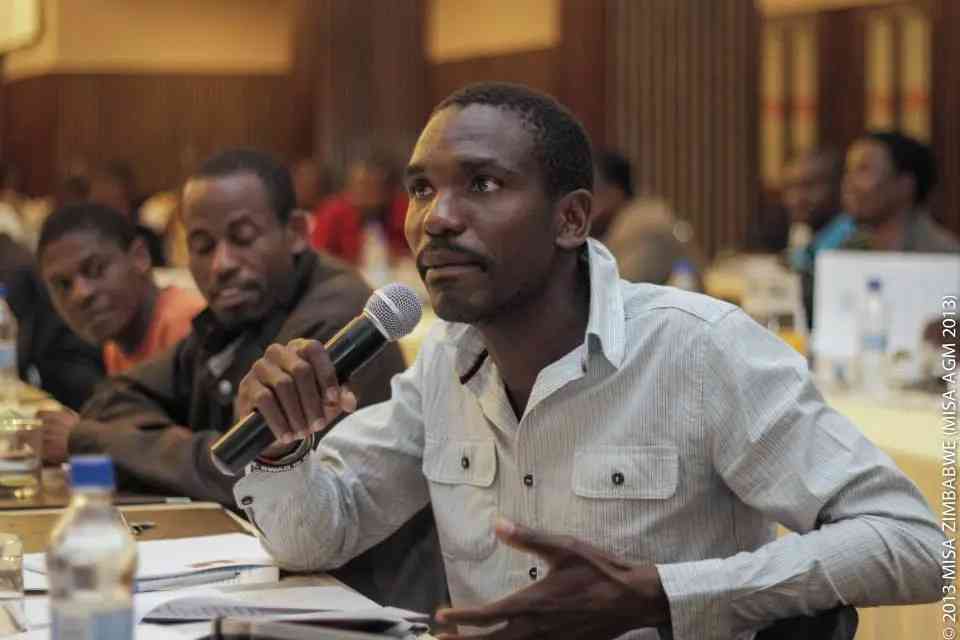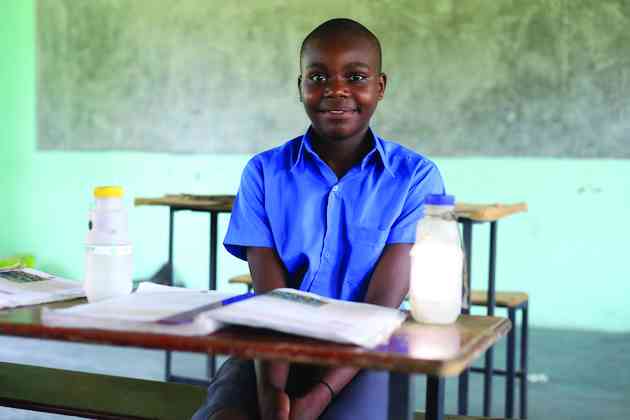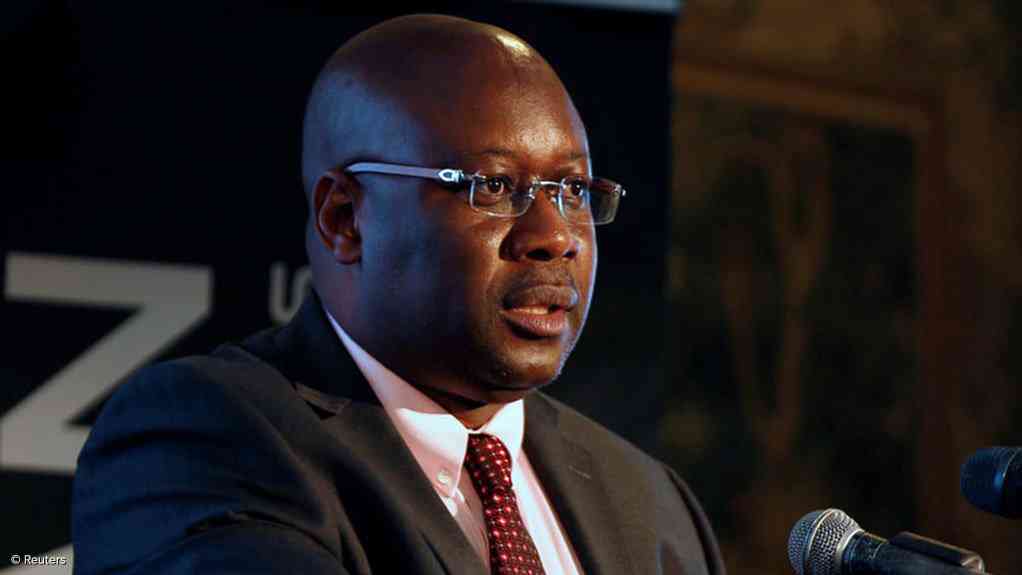
AFREXIMBANK has been providing lines of credit to Zimbabwe's private sector, particularly banks, over the years. In total, it has committed funding totalling US$11 billion to the country since its inception in 1993. To gain more insights into this, our assistant editor Mthandazo Nyoni (MN) had an exclusive interview with Humphrey Nwugo (HN), the bank's regional chief operating officer responsible for the Southern Africa region. Nwugo also revealed that the pan-African bank is eyeing Zimbabwe's "green" economic opportunities, with possibilities in sectors such as renewable energy, clean coal, and battery storage. Below are excerpts from the interview:
MN: How much did the bank extend as credit lines to Zimbabwe in 2024, and how much do you plan to set aside for the same purpose this year?
HN: Afreximbank operates on the basis of country limits, which guide our lending portfolio limits in each member country. Currently, the bank maintains significant country-limit head room for Zimbabwe – meaning we have ample scope to provide more financial support to eligible borrowers in this market. The bank’s engagements in the country span critical areas from trade and project financing to infrastructure development, SME empowerment, and intra-African trade facilitation.
We have intervened in strategic sectors of the economy, with a record of championing transformative initiatives in agriculture, mining, financial services and industrial development infrastructure. Moreover, the bank has supported the development of vital upgrades to transport networks, energy systems, and digital platforms.
MN: What specific infrastructure development projects in Zimbabwe does Afreximbank plan to support, and what is the expected timeline for these projects?
HN: The current pipeline of infrastructure-related projects comprises items at different stages of review and total around US$1 billion in value. Afreximbank has actively supported upgrades to transport networks, energy systems, border infrastructure and digital platforms, recognising that these are critical to broader economic growth and diversification. We expect to finalise these projects in the near term.
MN: How much financial support (both to the private and public sectors) has the bank provided to Zimbabwe since its inception in 1993?
HN: Over the years, the bank has demonstrated unwavering support for Zimbabwe's development agenda, with funding commitments totalling US$11 billion, a testament to our confidence in the country’s economic potential. Indeed, the bank continues to believe in the positive development trajectory of Zimbabwe. Through Afreximbank’s Industrialisation and Export Development strategy, we are engaged in on-going discussions with relevant parties to accelerate the establishment of industrial parks and Special Economic Zones (SEZ) – replicating a model, which has been successful in Togo, Gabon and Benin. These SEZs will primarily target agricultural produce processing, beneficiation of minerals and metals as well as other activities designed to expand local value chains and strengthen connections between the mining sector and local economies.
- Open letter to President Mnangagwa
- Feature: ‘It’s worse right now than under Mugabe’: Sikhala pays the price of opposition in solitary cell
- Masvingo turns down fire tender deal
- Human-wildlife conflict drive African wild dogs to extinction
Keep Reading
MN: We understand that the bank was in discussions to provide lines of credit to the National Railways of Zimbabwe and Cottco Holdings Limited. Can you please update us on the status of these facilities?
HN: Absolutely, the bank is engaged in discussions with various entities in Zimbabwe, including, but not limited to, those you have mentioned. The details of these agreements are subject to client confidentiality requirements.
MN: Afreximbank was granted land in Harare by the Zimbabwean government to build a landmark centre for facilitating intra-African trade. How far along is this project?
HN: The landmark centre – one in a network of Afreximbank African Trade Centres (AATCs) – will help bridge the trade information gap on the continent. The AATC model encompasses business complexes that offer an integrated one-stop shop for trade information, hospitality services, and finance, while also supporting non-bank-owned trade centres in Africa. We are grateful to the Government of Zimbabwe for donating the land, which is enabling the bank to construct the Harare AATC. The centre will comprise complexes totalling 30 000 square metres – including the bank's regional office, a hotel, a convention centre and other facilities. The trade centre is progressing well and will be commissioned soon.
MN: What role does Afreximbank see itself playing in supporting Zimbabwe's economic recovery, and what specific initiatives or programmes does the bank plan to implement in this regard?
HN: Afreximbank’s contribution to Zimbabwe’s economic recovery will reflect the four key instruments available to the bank via its mandate: funding for projects and trade financing; the provision of risk bearing mechanisms such as guarantees and insurance; the provision of payment services; and the offering of trade information and advisory services.
MN: Are there any plans to expand Afreximbank's operations or increase its presence in Zimbabwe to better support the growth and development of SMEs?
HN: Fundamentally, in Zimbabwe and across Africa, we aim to provide financing solutions for projects that enhance trade, support capacity-building initiatives, drive industrialisation and value addition, and facilitate cross-border trade under the AfCFTA framework.
In the future, Afreximbank will continue to deploy these instruments to support eligible counterparties in Zimbabwe. In particular, the bank is focused on supporting the growth and development of SMEs, especially at an early stage. As you know, SMEs account for two-thirds of Zimbabwe’s overall economy but these enterprises benefit from less than 4% of overall banking credit.
MN: How do you seek to support Zimbabwe through your SME Development Programme?
HN: Through our SME Development Programme, the bank is supporting the development and evolution of the SME sector–working through and with financial institutions in this market. Not only are we working to help Zimbabwean SMEs scale up their operations, we are supporting them as they enhance their competitiveness and escalate their contributions to the national economy. It is worth mentioning that our support for Zimbabwe’s economic growth also includes the deployment of our project preparation facility, investment guarantee facilities and equity investment through our subsidiary – the Fund for Export Development in Africa.
MN: Are there any other strategic interventions that Afreximbank has undertaken or plans to undertake in Zimbabwe?
HN: Another significant strategic intervention undertaken by Afreximbank in Zimbabwe is being realised through the bank’s Export Agriculture for Food Security Initiative, whose MoU (memorandum of understanding) was signed on the side-lines of the Intra African Trade Fair in Cairo in 2023. As part of this project, the bank is working with relevant government agencies and ministries to position Zimbabwe as a net exporter of agricultural products. We are, at this point, reviewing the value chain analysis conducted by our partner company – Arise IIP –which identified challenges and laid out a roadmap for working through them.
MN: What do you seek to achieve this year?
HN: In 2025, we expect to commence the implementation of this initiative in Zimbabwe. We also see a lot of “green” economic opportunities in Zimbabwe, with possibilities in sectors, such as renewable energy, clean coal and battery storage, among others.










